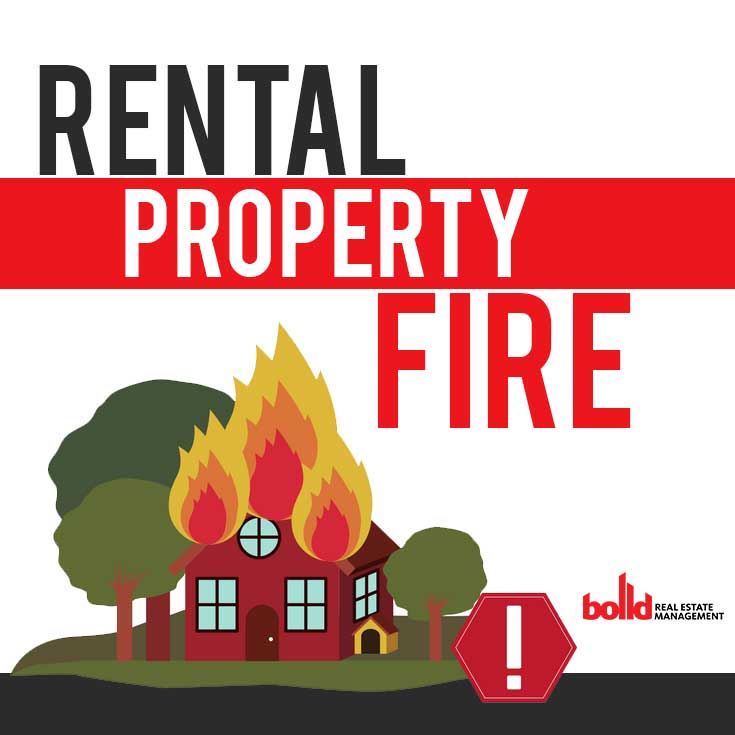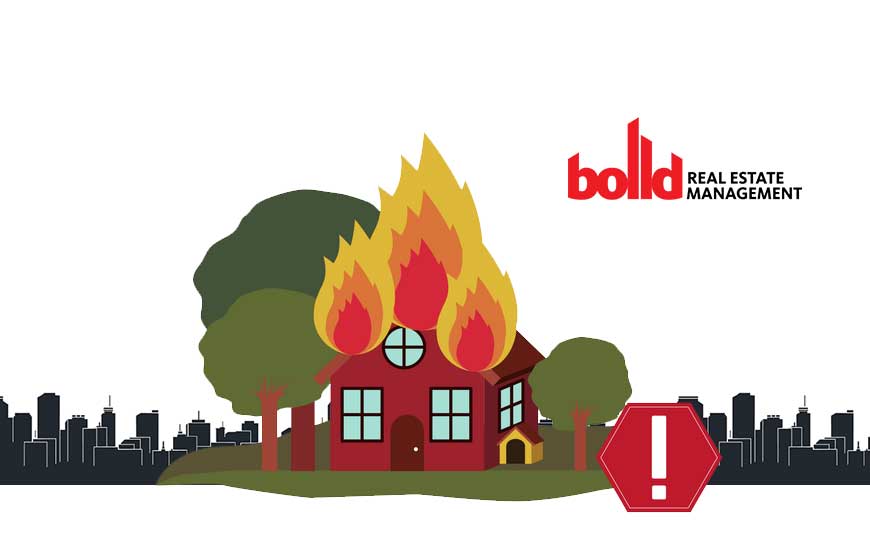A rental property fire is one of the things most landlords dread more than anything else. As a rentals fire is less common than other issues landlords face, they often panic and don’t know where to start. We compiled a list of 10 steps to make your life much easier in the case of a rental property fire.

Step #1: Rental Property Fire: Collect Details
Speak with your tenants. This will help shed light on everything that has happened and where the fire came from. It might have been an electrical fault that caused the fire. The more information you have on the rental property fire, the better.See also: 3 Steps for Choosing Quality Tenants for Your Rentals
Step #2: Contact the Insurance Company
Insurance Companies can take a while to process a claim. The earlier you notify them the faster it will be.

Step #3: Help Tenants Find a New Home
Step #4: Contact Fire Restoration Companies
Step #5: Document the Damage
The fire department will let you know when it is safe to enter the property after the fire. When done go in and document everything. it will help with the insurance claim.
Step #6: Secure the Property
After the rental property fire, secure the property as best you can. This is to avoid trespassers entering. It is dangerous for them to enter. Securing it as soon as possible is essential.
Step #7: Determine Liability
Knowing who is responsible in a rentals fire will determine who pays for it. If it is due to electrics or structure, the landlord will be responsible. The insurance should cover it. If it is the tenant’s, the insurance company will likely follow this up with their company or the with the tenant.
Step #8: Begin the Repair
Hire professionals to do the repair work to make sure the property is at habitable standards.
Step #9: Have the Property Re-Inspected
The fire department will likely re-inspect the property. Once done, get a certificate of occupancy before you can get tenants back in.See also: Hiring a Property Management Company
Step #10: Write Off Uninsured Losses
Anything not covered by the insurance company needs to be write-off on your taxes that year. There are lots of factors that impacts the loss you end up with. Such as any money paid by tenants associated with repairs or court payouts.


